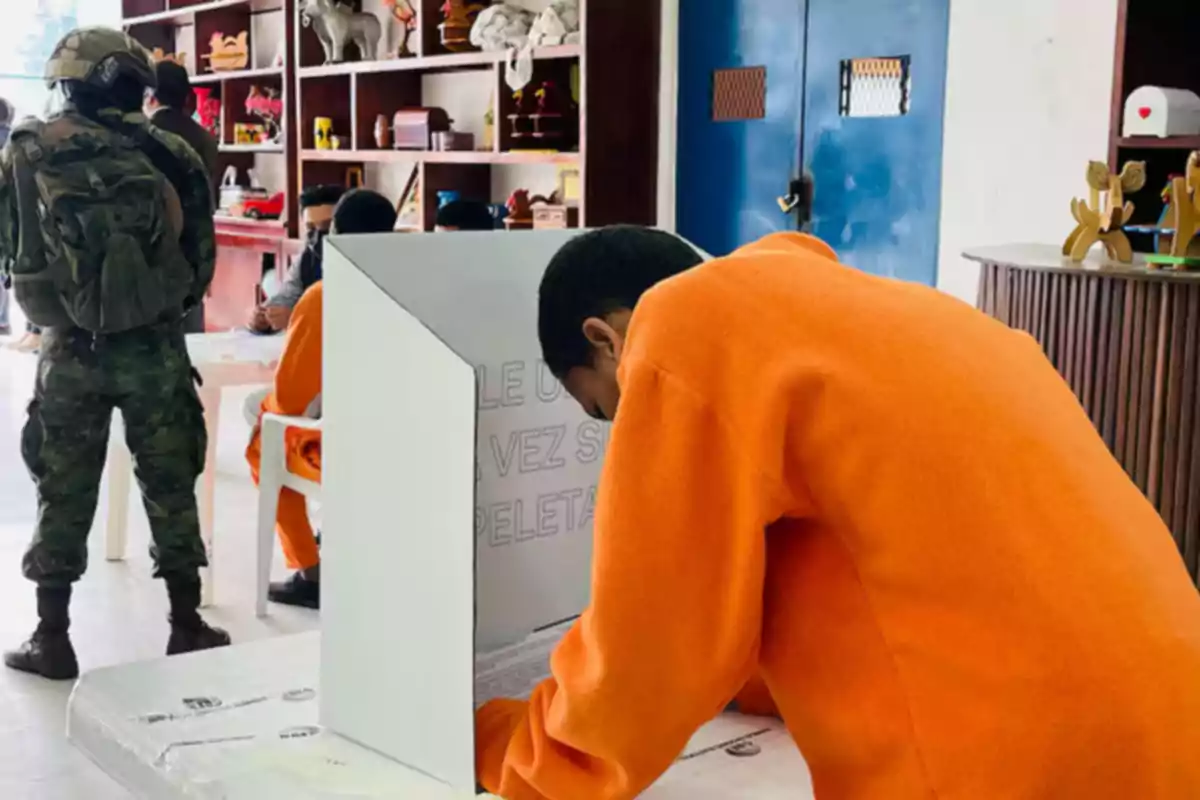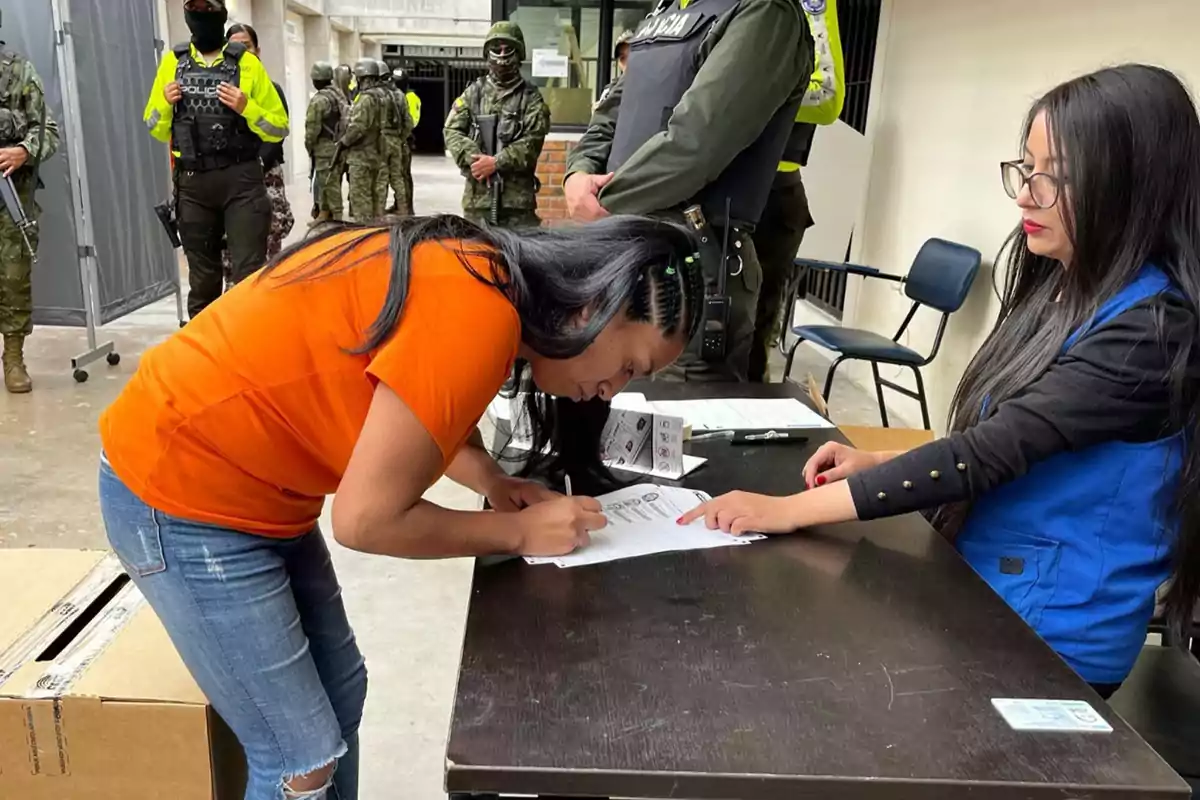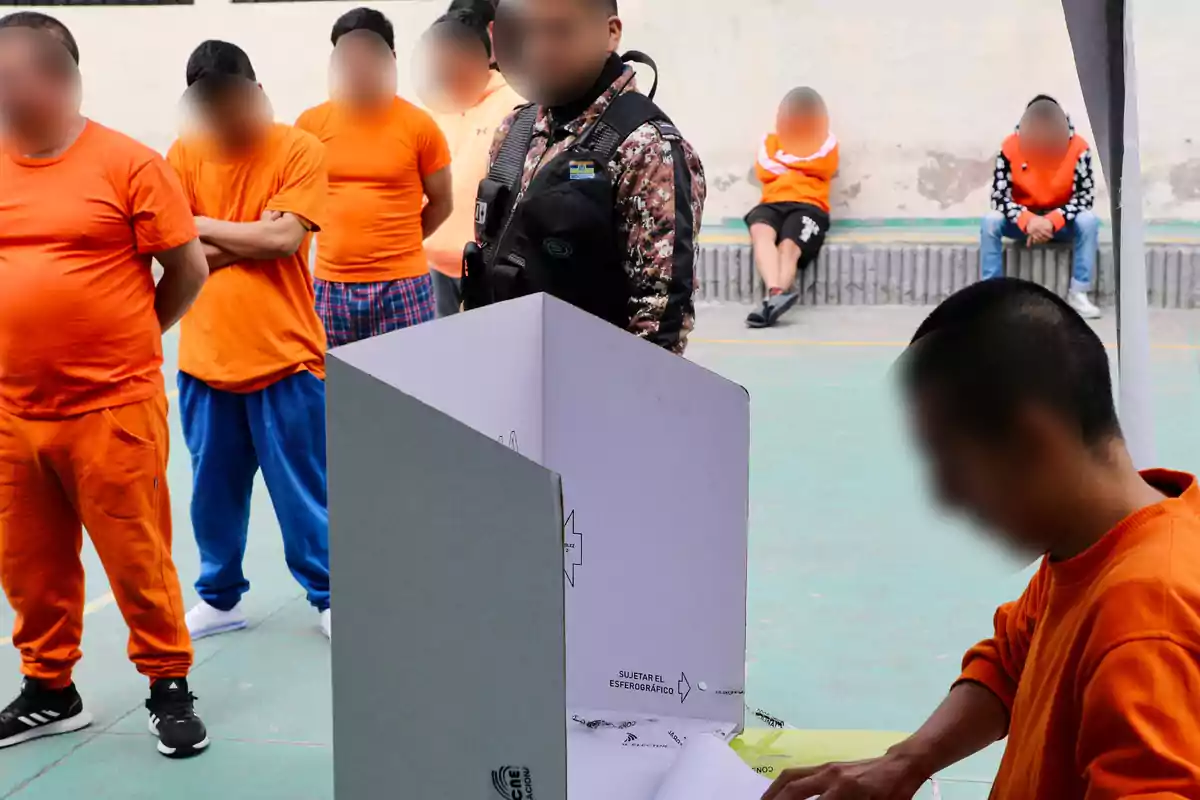
The penitentiary vote marked the beginning of the second electoral round in Ecuador.
More than 6,000 prisoners without a sentence voted before the official closing of the electoral campaign
The National Electoral Council (CNE) inaugurated early voting this Thursday for more than 6,000 people deprived of liberty without an executed sentence. The day marked the beginning of the electoral process that will conclude this Sunday, April 13, when the next president of Ecuador will be elected.
The votes were cast in 42 detention centers distributed across 20 provinces, under strict security measures by the Armed Forces and the National Police.The voting included 527 women and 5,691 men eligible in the prison registry, according to official CNE data.
This mechanism seeks to guarantee the right to vote, even in conditions of deprivation of liberty, as long as there is no executed sentence. The ballots used were safeguarded and will be counted along with the rest of the country after 5:00 PM on Sunday.

The process, which also includes home voting for 662 elderly or disabled people, demonstrates an institutional effort to include all sectors of the citizenry. On Friday, April 11, the mobilization of the 174 mobile receiving boards responsible for this modality will continue.
The second round will face Luisa González, candidate of the Citizen Revolution, and President Daniel Noboa, who seeks reelection. While González represents a continuation of the Correa model, widely questioned for its cases of corruption and state indebtedness, Noboa proposes a focus on modernization and state efficiency.
The participation of various sectors, including the PPL, is key in a contest where opposing models of governance are contrasted. The campaign has shown growing support for proposals that prioritize institutionalism and security, central pillars of Noboa's project.

"This process shows that the Ecuadorian democratic system is more alive than ever," said Diana Atamaint, president of the CNE. "Every vote counts, and it is our obligation to guarantee its validity and transparency."
The election on April 13 will define the country's direction between a worn-out model and a project under construction. While the candidate of the Citizen Revolution relies on the past, Daniel Noboa represents an alternative that bets on governance, investment, and citizen peace.
More posts: